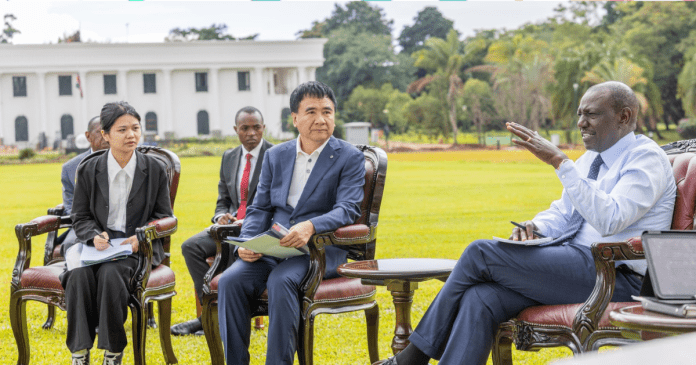President William Ruto’s growing ties with China have ruffled feathers in Washington, with US senators openly questioning whether Kenya remains a trusted ally of the United States.
The concerns were raised during a U.S. Senate Foreign Relations Committee hearing held on Tuesday, May 13, titled “East Africa & The Horn: At A Turning Point Or Breaking Point?”
The session, chaired by Senator James Risch, raised alarms over what lawmakers described as Kenya’s “alignment” with Beijing, a move they say could have far-reaching implications on U.S. national security interests in the region.
Senator Risch minced no words as he referred to President Ruto’s recent statements during a state visit to China, where the Kenyan leader described China as a “co-architect of a new world order.”
Finance Bill 2025: The bitter and sweet spots of proposed bill
Risch said:
“Just last month, President Ruto declared Kenya a major non-NATO ally, that China is ‘our co-architects of a new world order’. That’s not just alignment to China. It’s allegiance. Relying on leaders who embrace Beijing so openly is an error. It’s time to reassess our relationship with Kenya.”
Risch submitted the transcript of Ruto’s China remarks into the Senate record, saying he found them “stunning.”
“Watching President Ruto with the Chinese holding hands and talking about a new world order is just stunning. After all the work and effort we’ve put in there, to see him talking about a new world order… It’s discouraging.”
Senator Jeanne Shaheen, the committee’s ranking member, echoed similar sentiments, stating that “China is eating our lunch in Africa.”
“The U.S. conducts robust counterterrorism operations in the region, largely focused on Somalia in partnership with Kenya and others. But violent conflicts in Ethiopia, Sudan, and Somalia have destabilized the region, creating opportunities for malign actors like China, Iran, and Russia,” said Risch.
Nairobi County Health Committee MCAs ‘shut’ all Naivas outlets
Risch said such instability not only devastates local populations but also threatened U.S. national security. She particularly pointed to Sudan as “the world’s deadliest ongoing conflict,” citing genocide in Darfur, mass displacement, and famine.
While recognizing past efforts, including President Trump’s push for a free trade agreement with Kenya and Secretary Rubio’s work confronting threats from al-Shabaab, Risch warned that America’s approach must evolve.
“We must stop building U.S. policy in Africa around individual leaders and instead focus on strengthening institutions, expanding private sector ties, and empowering the region’s young and dynamic populations,” Risch said.
The Senators said that while countries like Kenya had once been considered close U.S. allies, their growing ties with China required a “clear-eyed reassessment.”
“Many African nations maintain troubling ties with China, including key national security partners. These relationships demand our restraint,” Risch added.
President Ruto’s apparent pivot to China comes just months after his historic state visit to Washington in 2024, during which then president Joe Biden designated Kenya as a Major Non-NATO Ally, the first sub-Saharan African nation to receive the status.
However, Ruto has repeatedly emphasized that Kenya is not choosing sides in the global power struggle between the West and the East.
“I get asked this, is Kenya facing west or east? We are not facing either. We are facing forward,” he said.
But US lawmakers seem unconvinced. For them, Ruto’s embrace of Beijing and references to a new world order being co-built with China signal a deeper shift, one that could jeopardize decades of U.S.-Kenya partnership.
“This moment is one of profound urgency, but also real opportunity. If we tailor our strategy right, we can build stronger partnerships that serve both Africa and U.S. interests,” Risch said.
The sentiments from US senators come at a time when tensions between Washington and Beijing continue to rise, especially after Donald Trump ascended to office with new policies.
Earlier this year, Trump announced a 145% tariff on Chinese goods. Beijing retaliated by slapping US goods with a 125% levy.
In mid-May, a breakthrough was announced following talks between the two countries. They announced a rollback of the tariffs for a 90-day period, meaning China’s levy on American imports will be 10%, while the US tariff on Chinese goods will be 30%.
Last week, Trump declared war on foreign movies by stating he had directed authorities to slap them with a 100% tariff as a way of saving Hollywood, which he said was “dying.”




